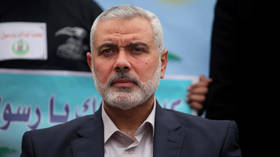Children from Indian streets learn art of investment
Thousands of children are left to fend for themselves on the streets of Indian cities. Local NGO came up with a unique idea to help them. It's set up a bank that manages their savings and teaches them the art of finance.
Mukesh looks just like an ordinary kid in his teens. But he is a branch manager at the Children’s Development Khazana bank. It’s a bank run almost entirely by and for New Delhi’s street children. Like any other, it pays interest on the deposits they make. This is a vital incentive to kids who might otherwise spend their daily earnings on cigarettes or sweets – or worse, have it stolen.
“Somedays there are more children, somedays less,” said the young branch manager. “Those who need money take it out of their accounts, while those who’ve finished work come to deposit their days’ earnings.”
The bank is supported by a local “Butterflies” NGO but not owned by any commercial entity. It offers street children a safe place to stash the bits of money they earn. It is open to children between 9 and 18 years old. With managers chosen every six months by the children themselves, the bank helps them gain valuable work skills.
“It’s owned by all,” said Rita Panicker, director of the Butterflies organization. “The clients are also the owners. In a mainstream bank, you’re just a client, you have no say in the management. You have no say as to who can get an advance and what they do with your money.”
A key part of the bank's mandate is helping the children build entrepreneurial skills for business, and it provides loans to start them off.
14-year-old Parveen Solanki is a proud account holder. He earlier worked long hours as a shop assistant and has now started saving 10 rupees a day, or 25 cents.
“Whatever money I can get, I deposit it in the bank. When I grow up, I want to complete my education and get a good job, maybe even become a police officer,” Parveen said.
For thousands of children in India’s cities and countryside, learning the art of investing small amounts of money is actually allowing them to dream and gives them something to work toward.











